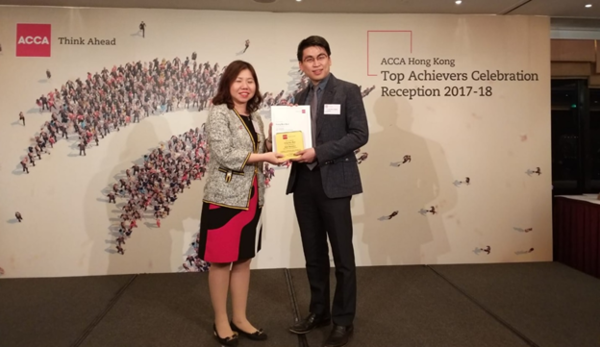The KAIST Herald interviewed KAIST international alumni about their experiences as students in KAIST and how these experiences have helped them in their current careers. This interview series was conducted in collaboration with International Scholar and Student Services (ISSS).

Please introduce yourself.
First of all, thank you for reaching out to me to talk about my stories with KAIST. I am a graduate of the KAIST Techno MBA program, [which] I attended in 2014, majoring in finance and investments. After graduating, I embarked on a career in alternative investment as well as fintech throughout Asia, working with a great number of private equity funds, hedge funds and financial institutions in the region.
I would consider myself a blockchain strategist, a digital accountant, as well as a fintech investor. I am a member of the Association of Chartered Certified Accountants (ACCA), and my professional career focuses on enterprise blockchain strategies, digital finance as well as investment in fintech companies. [Currently] I work as a market strategist at Ground X, which is the blockchain subsidiary of Korea’s largest mobile platform Kakao with over 50 million monthly users.

What is your favorite memory in KAIST?
After so many years, I still remember the China-Korea-Japan Workshop program, which was a joint workshop between the business schools of Tsinghua University, KAIST, and Keio University. Participants of the program included business professors from the three business schools and their MBA students with various professional backgrounds in computer science, media and telecommunications, corporate finance, etc. We were also given opportunities to visit some leading technology firms in China and prepared some business cases with students from other schools. It was a rare opportunity for managers from the three Asian economies to come together to learn and share best management practice with each other.
What were the challenges you faced while studying in KAIST, and how did you overcome them?
Since I did not come from a quantitative background, it was not that straightforward for me to understand some quantitative topics like derivative pricing and Monte Carlo simulation in the beginning.
However, I learned a life motto in KAIST that helped me overcome the challenge, and I found that written on the wall of the lecture hall where I had my first MBA lesson — “Back to the basics”. I found out that those quantitative finance topics were based on some basic concepts that I learned in my childhood, such as normal distribution, probability and geometry, and they were not completely new concepts. After trying to approach those quantitative concepts from the basics they looked much easier and made sense to me, and I still find this approach very useful in my professional career.
Did your view of KAIST change from when you were studying in KAIST compared to after you graduated? In what ways?
When I studied at KAIST the school had a reputation of being the MIT in Korea, with a long list of patents and scientific innovation developed by its faculty and students. Over time, I saw many professors and graduates start to found their own companies or serve as external advisors to technology or financial firms, putting their research and knowledge into action. The business school also offers new courses in AI, blockchain, and machine learning that serve the emerging needs of digitalization in business and finance. More graduates are also actively investing in startups and tech companies founded by KAIST graduates, creating a virtuous cycle of healthy ecosystem growth in the high-tech space.
How did you first choose your career? How did KAIST help in your career choices?
I am always enthusiastic in emerging technologies and finance and keen to develop a career in fintech where both technology and finance come together. KAIST’s Techno MBA program was indeed a great experience for me to explore ways in which emerging technologies can be applied to solve problems in the financial system thanks to its emphasis on technology management. I also had a chance to study with other classmates who work for big techs and financial firms such as Microsoft, Facebook, Samsung, JP Morgan, and others, and learned from their first-hand experience.
What classes or activities did you pursue in KAIST that helped you in your career?
I was glad that I conducted some in-depth research and wrote a thesis on Environment, Social and Corporate Governance (ESG); at that time ESG topics did not receive the same level of attention from the industry as they do nowadays. Later in my career I found that many business problems have its roots in ESG issues, and emerging technologies like blockchain AI, machine learning have a great role to play here to enhance the speed and accuracy of ESG and corporate reporting.
What advice can you give to current KAIST international students?
I would suggest that international students learn different kinds of languages. By the word “languages”, I mean not just the Korean language, but business and computer languages such as accounting, Python, SQL, etc.
By learning the Korean language you will be able to make more friends and understand more about the country, and that will become part of you that helps you to develop a broader perspective about yourself and the world. By learning business and computer languages like accounting and Python, you will be better in understanding the world around us. While finance and accounting analysis is relatively static in nature, computer programming allows you to collect and analyze new information and data in a dynamic manner. You may not need to be equally proficient in accounting and programming to succeed in your job, but having some working knowledge in both will open more doors and opportunities to you in the emerging digital economy.

